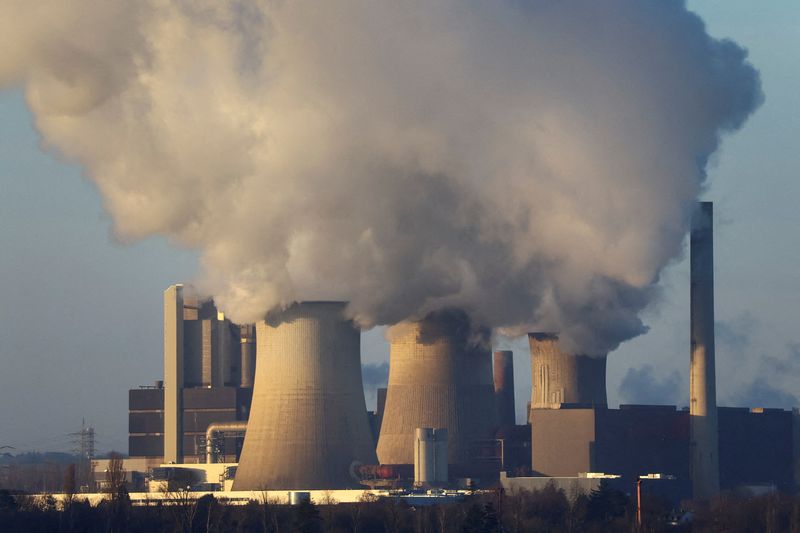By Susanna Twidale
LONDON (Reuters) - Global energy-related emissions of carbon dioxide hit a record high last year, although more clean technology such as solar power and electric vehicles helped limit the impact of increased coal and oil use, the International Energy Agency (IEA) said on Thursday.
Deep cuts in emissions, mainly from burning fossil fuels, will be needed over the coming years if targets to limit a global rise in temperatures and prevent runaway climate change are to be met, scientists have said.
"We still see emissions growing from fossil fuels, hindering efforts to meet the world’s climate targets," IEA Executive Director Fatih Birol said in a release alongside the report.
The report by the Paris-based watchdog comes just weeks after major fossil fuel producers such as Chevron (NYSE:CVX), Exxon Mobil (NYSE:XOM) and Shell (LON:RDSa) reported record profits, with BP (NYSE:BP) also rowing back on plans to slash oil and gas output and reduce emissions.
"International and national fossil fuel companies are making record revenues and need to take their share of responsibility," Birol said.
Global emissions from energy rose by 0.9% in 2022 to a record 36.8 billion tonnes, the IEA analysis showed.
Carbon dioxide (CO2) emissions from coal grew by 1.6% last year with many countries turning to the more polluting fuel after Russia’s invasion of Ukraine and a reduction in Russian gas supply to Europe sparked record high gas prices.
CO2 emissions from oil rose by 2.5% but remained below pre-pandemic levels the report said.
Around half of the increase in oil-related emissions was due to a rise in air travel which was rebounding from a low during the pandemic.

Lower output from nuclear power plants and extreme weather events including heatwaves also contributed to the increase in energy related emissions, the IEA said.
Emissions were partly offset, however, by a rise in renewable power sources like wind and solar, energy efficiency measures and electric vehicles. These avoided an additional 550 million tonnes of CO2 emissions last year, the IEA said.